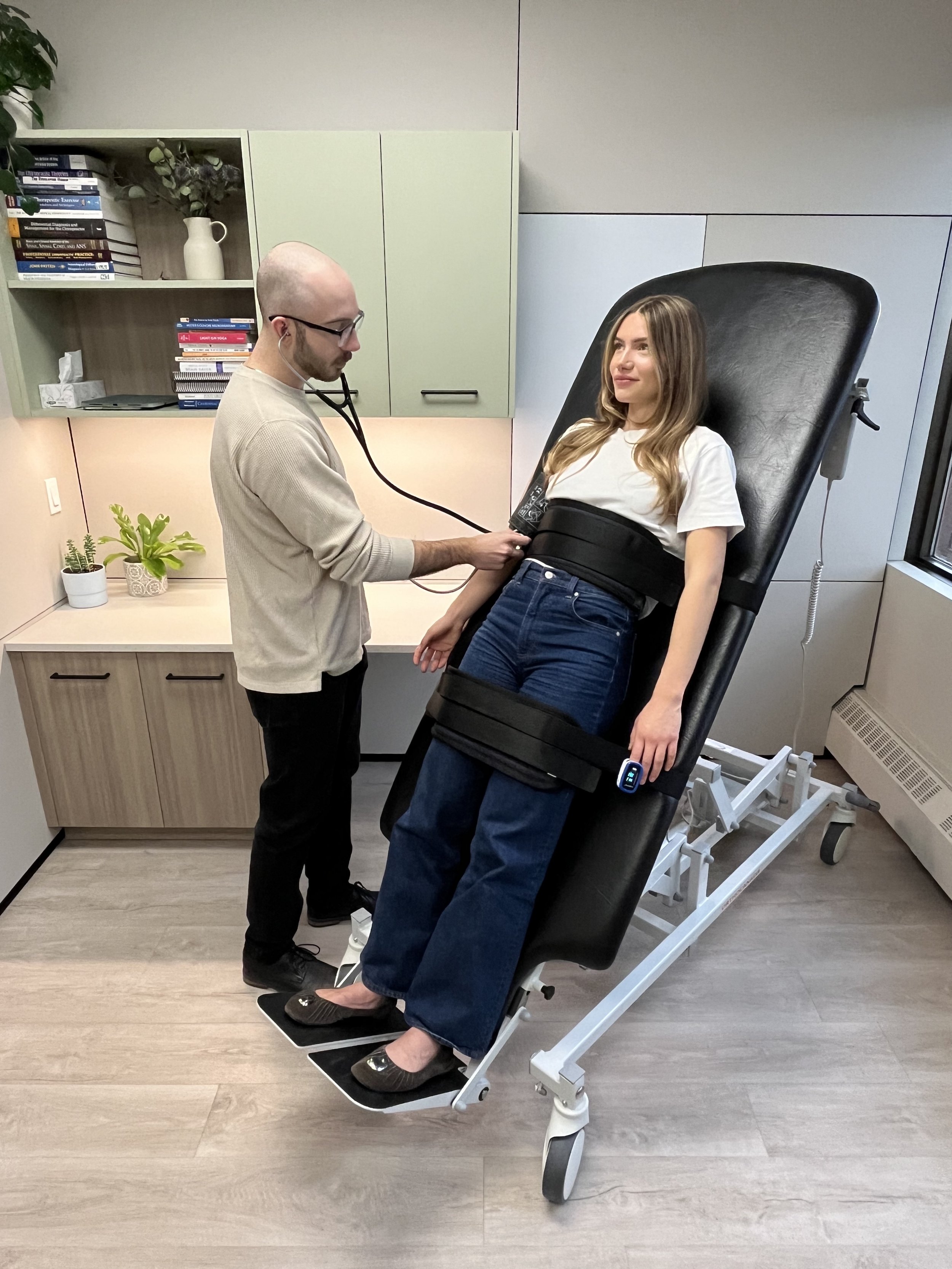
Calgary Tilt Table Testing
What Is Tilt Table Testing?
Tilt table testing is a procedure used to evaluate causes of unexplained fainting (syncope) and assess how the body responds to changes in position. During the test, a patient lies on a table that tilts from a horizontal to a vertical position while their heart rate and blood pressure are monitored. This helps doctors determine if the body’s autonomic nervous system is functioning properly and can reveal issues like orthostatic hypotension or vasovagal syncope.
Simple and Easy
What To Expect During Your Tilt Table Test
The testing will start with the patient lying flat on their back on a table for 10 minutes to establish a baseline resting heart rate. Next, the patient will be raised to 45 degrees, followed by 70 degrees, with readings taken at each position. The patient will then remain at a 70-degree angle, with heart rate and blood pressure readings taken every 2 minutes for a total of 10 minutes.
Should I Have Tilt Table Testing?
Tilt Table testing may provide diagnostic insights if you are experiencing any of the following:
Suspected POTS - Postural Orthostatic Tachycardia Syndrome
Lightheadedness with postural changes
Syncope (fainting) of unknown origin
Exercise intolerance
Large variances in resting heart rate (including rapid heart rate)
Dysautonomia
